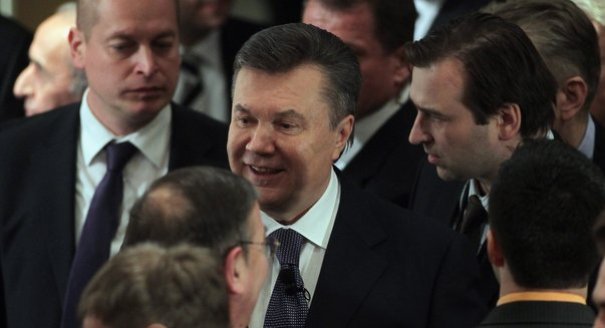Registration
Thank you!
You will receive an email confirming your registration.
IMGXYZ3726IMGZYXUkraine’s European integration has slowed down, and its relations with Russia also show no signs of progress. Olga Shumylo-Tapiola of Carnegie Europe addressed both issues in a presentation at the Carnegie Moscow Center. Carnegie’s Dmitri Trenin moderated the discussion.
Ukraine’s Relations with Europe and Russia
- Brussels’ Mistakes: Shumylo-Tapiola noted that two years ago, when Viktor Yanukovych became president of Ukraine, the EU formed a mistaken perception of him in his new role. He had always been seen as a pro-Russian politician, and at the same time, many believed that he would be heavily dependent on oligarchic circles. These mistaken perceptions prevented the EU from building more solid ties with Ukraine.
- Ukraine and Russia: Shumylo-Tapiola said that the biggest obstacle in strengthening Russian-Ukrainian ties is the Ukrainian leadership’s absence of a strategic plan for building relations with Moscow.
- The “Grey Zone:” Ukraine is now in a sort of “grey zone” between the EU and Russia, Shumylo-Tapiola said. This situation is to the Ukrainian authorities’ advantage as it enables them to lay the blame in turn on Moscow and Brussels for their own foreign policy failures.
Prospects for Ukraine’s Foreign Policy
- European Integration: Shumylo-Tapiola noted the lack of progress in Ukraine’s relations with Europe and said that a positive shift is unlikely in the near future. Ukrainian authorities are reluctant to agree to any compromise with their European colleagues, who demand Yulia Tymoshenko’s release and the holding of fair and free elections. Shumylo-Tapiola suggested that Ukraine could “ultimately turn into a second Belarus” in terms of its relations with the EU. In her view, countries such as Moldova and Georgia have much greater chances than Ukraine of eventually joining Europe.
- Relations with Russia: The main factor influencing Russian-Ukrainian relations will remain the Ukrainian authorities’ mistaken notion that “Russia owes them something,” Shumylo-Tapiola said. This will lead Ukraine to continue demanding concessions of all kinds from Russia, including lower gas prices, she suggested. But Russian authorities have no incentive to make such concessions, as there would no obvious gain for Russia. In particular, despite Russia’s attempts to draw Ukraine into the Customs Union, the Ukrainian authorities are making no moves in this direction. Shumylo-Tapiola concluded that relations between Moscow and Kyiv will not show any progress until Ukrainian authorities realize the need to develop strategic relations with Russia.
